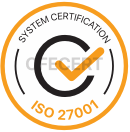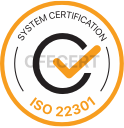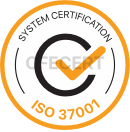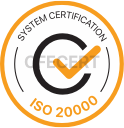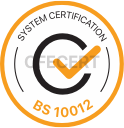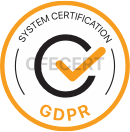TISAX stands for “Trusted Information Security Assessment Exchange.” It is a standard and assessment framework used in the automotive industry to evaluate and ensure the information security of organizations within the supply chain.
TISAX was established by the German Association of the Automotive Industry (VDA) to enhance data security and protect sensitive information in the automotive sector. It aims to establish a common framework for information security assessments and to facilitate the exchange of assessment results between different organizations.
TISAX assessments are carried out by accredited assessors who evaluate an organization’s information security measures based on predefined criteria. These assessments can help identify potential vulnerabilities and areas for improvement, ensuring that companies in the automotive industry handle sensitive data in a secure manner.
TISAX was developed by the German Association of the Automotive Industry (VDA) to address the increasing concerns regarding information security in the automotive sector, particularly with the rise of connected cars and digitalization. The framework provides a common method for assessing and evaluating the information security measures of companies involved in the automotive industry.

Key aspects of TISAX include:
- Information Security Assessment: TISAX assessments are conducted by qualified and accredited assessors who evaluate an organization’s information security practices against the TISAX criteria.
- Data Exchange: TISAX enables the secure exchange of assessment results and reports between companies within the automotive supply chain. This exchange is managed through a central platform, ensuring confidentiality and integrity.
- International Recognition: While initially developed in Germany, TISAX has gained recognition internationally, and many automotive companies worldwide are adopting it as a standard for information security assessment.
Let’s compare TISAX with some of these similar standards:
ISO/IEC 27001:
ISO/IEC 27001 is an international standard for information security management systems (ISMS). It provides a systematic approach for organizations to manage sensitive information and address information security risks. ISO/IEC 27001 is not industry-specific, and it can be applied to any organization, regardless of its size or sector. Unlike TISAX, which is primarily focused on the automotive industry, ISO/IEC 27001 is more versatile and widely recognized across various domains.
SOC 2 (System and Organization Controls 2):
SOC 2 is a set of criteria developed by the American Institute of CPAs (AICPA) for auditing and reporting on the controls relevant to security, availability, processing integrity, confidentiality, and privacy of data. SOC 2 reports are often used by technology service providers to demonstrate their commitment to safeguarding customer data. While SOC 2 and TISAX both address information security concerns, SOC 2 is not specifically tailored to the automotive industry and has a broader application.
GDPR (General Data Protection Regulation):
GDPR is a regulation in EU law concerning data protection and privacy for individuals within the European Union and the European Economic Area (EEA). It imposes strict requirements on how organizations handle and process personal data. Unlike TISAX, which focuses on information security assessments, GDPR is centered on privacy and data protection. However, GDPR and TISAX can be complementary, as both address important aspects of data security and privacy.
NIST Cybersecurity Framework:
The NIST (National Institute of Standards and Technology) Cybersecurity Framework is a set of guidelines, best practices, and standards aimed at improving cybersecurity risk management for critical infrastructure organizations. It is not specific to any industry and can be adapted by organizations across various sectors to enhance their cybersecurity posture.
In summary, TISAX is a unique standard developed for the automotive industry to assess information security within the supply chain. While it has a narrow focus, there are other more general standards like ISO/IEC 27001, SOC 2, GDPR, and the NIST Cybersecurity Framework that address information security and privacy concerns in broader contexts and across different industries. Organizations should choose the standard that best aligns with their specific needs and regulatory requirements.
We provide the following trainings in the Automotive industry;
- TISAX Automotive Information Security Management Awareness Course
- ISO/SAE 21434 Road Vehicles Cyber Security Engineering Awareness Course
- ISO/SAE 21434 Road Vehicles Cyber Security Engineering Internal Auditor Course
- ISO/SAE 21434 Road Vehicles Cyber Security Engineering Lead Auditor Course
- TPM – Total Productive Maintenance Course in Automotive
- SA 8000:2014 Social Responsibility Standard Internal Auditor Course
- IATF 16949 Automotive Quality Management System Awareness Course
- IATF 16949 Automotive Quality Management System Internal Auditor Course
- Statistical Process Control (SPC)
- Failure Mode and Effects Analysis (AIAG-VDA-FMEA)
- Process Failure Mode and Effects Analysis (PFMEA)
- Design Failure Mode and Effects Analysis (DFMEA)
- Advanced Product Quality Planning (APQP) and Production Part Approval Process (PPAP)
- Measurement Systems Analysis (MSA)
- Global 8D and Effective Problem-Solving Techniques
- IATF’s Automotive Process Management Model
- Total Efficient Maintenance
- Change and Continuous Improvement (Kaizen)
With us for our training services; training@cfecert.co.uk
For our certification services, you can contact us at certification@cfecert.co.uk.



